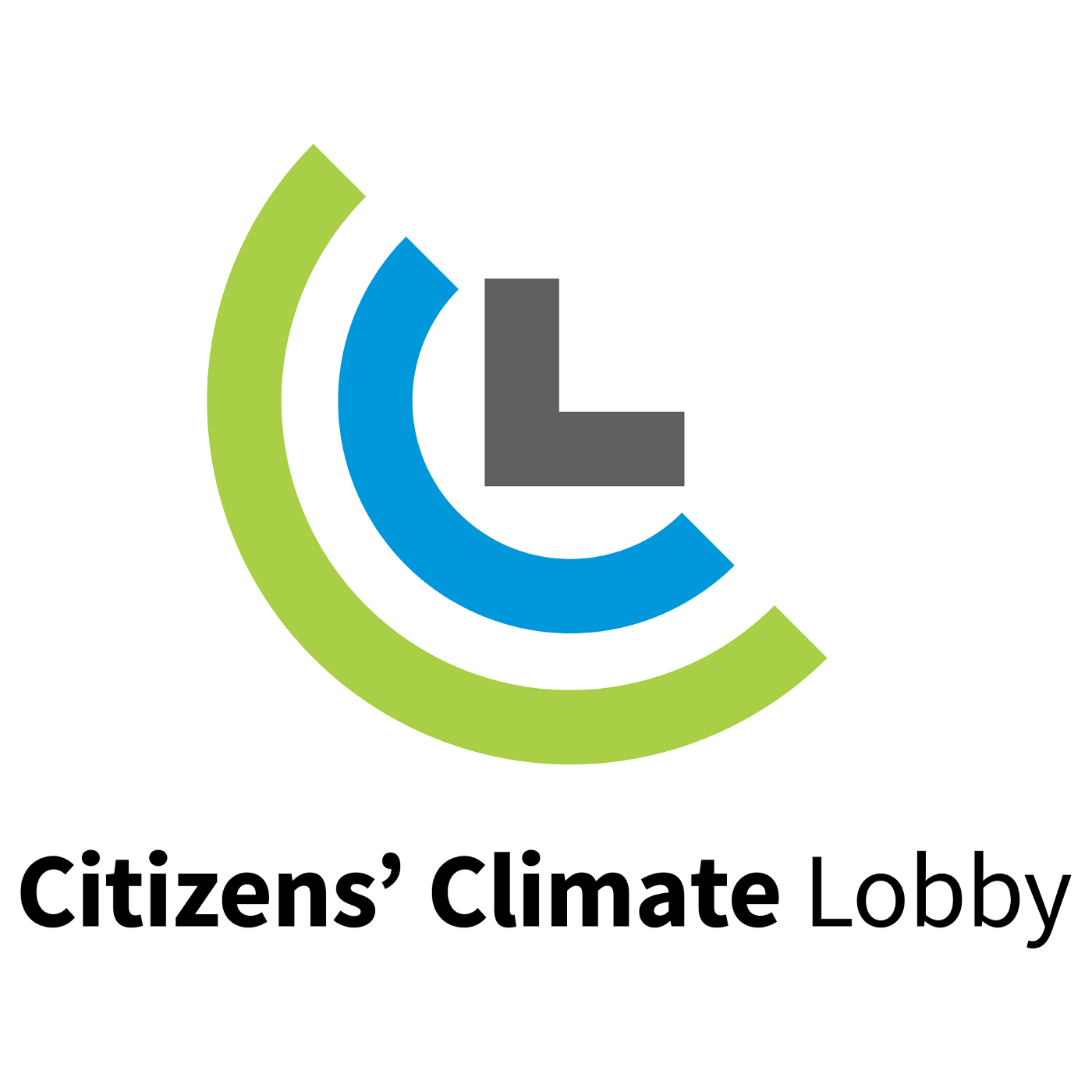Episodes
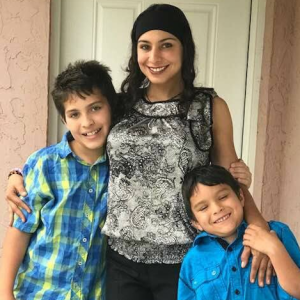
Friday Dec 20, 2019
Friday Dec 20, 2019
In this episode you will meet a fellow climate action figure. Solemi Hernandez finds great joy and fulfillment in the climate work she does. In hearing some of her own story, we hope it inspires you in your own. Originally from Venezuela, Solemi has lived in the US state of Florida for the past 17 years. She seeks to improve conditions for immigrant farm workers. She is also raising her two sons, and Solemi has taken on a very big mission. She wants to save the world starting in her own community.
Like her father and grandfather before her, Solemi worked for the oil industry in Venezuela. In fact, she grew up in an oil town and saw firsthand the environmental and health hazards that came with the well-paid oil jobs. Once the oil industry became nationalized, Solemi moved to the USA and started on a very different path—as a social justice minded environmentalist. She began to volunteer with various groups including the Water Keepers Alliance and the Sierra Club. She helped create a local chapter of The Pachamama alliance, an umbrella organization that connects environmental and social justice organizations to work in the community. She also volunteered for Citizens Climate Lobby.
Her concerns for her community and her passion to address climate change deepened in 2017 when she and her family endured a category 5 storm, Hurricane Irma. For three days the family lived in an emergency shelter in a public school that eventually also flooded. They returned to a devastated neighborhood. Their house survived the storm the region was without electricity for three weeks. With sweltering temperatures and limited supplies and resources, she and her community worked together to take care of each other. Solemi speaks about the added risks marginalized people face who do not have the income and mobility necessary to escape the storms and then to rebuild.
Solemi admits that climate work is challenging, but she has found purpose and meaning in the climate work she is doing. Her enthusiasm is contagious, and her story is inspiring.
Solemi Hernandez is Citizens Climate Lobby's Southeast Regional Coordinator covering Florida, Alabama, and Georgia. She first learned about CCL in 2017 and she immediately signed up as a volunteer because she was inspired by CCL’s mission to create the political will for climate solutions. She is currently enrolled as a Political Science student at Florida Gulf Coast University. She has been a grassroots activist and community organizer for many years in Florida.
Prior to CCL, she worked as the co-host of a Spanish language TV talk show based in Southwest Florida. While at this position she had the opportunity to research and conduct in-depth personal interviews with political candidates and politicians. She has been volunteering with a number of organizations advocating in Tallahassee for the environment and the Everglades restoration.
Solemi is the mother of two wonderful young boys who are her motivation to continue her work for a better quality of life for all. She enjoys reading, watching documentaries, spending time with family and friends, going to the beach and exploring nature in all its diversity.
The Art House
Playwright Chantal Bilodeau returns to the Art House. Every two years to coincide with the UN COP meetings, Chantal and her team organizes an international event, Climate Change Theatre Action. They select 50 short climate change themed plays from 50 playwrights around the world. This fall over 200 communities organized events in 30 countries where they read some of these plays. Chantal shares highlights along with good news about how the movement is growing both in and outside of the theatre community. A book with all 50 of the 2019 plays will be published in 2020. The collection of 50 plays from 2017 is available now.
Puzzler Question
We hear your answers to a question about what household might do with a carbon dividend. Your friend Darren thinks given out a dividend is a bad idea. He says, "People will just use the dividend they get to continue paying for fossil fuels. Giving them money enables them to stay in their fossil fuel lifestyles. Hear what listeners had to say.
New Puzzler Question
You are at a political rally chatting with a new friend. Let’s call her Heather. When you ask her if she wants to join your climate group, she says, “Don’t take this the wrong way, but I don’t have time for climate work. I feel bad saying that but I work full time and two children still in school, I don’t have time for protesting right now.
How would you respond to Heather?
Send Peterson your answer by January 15, 2020, along with your name, contact info, and where you are from. You can email your answers to radio @ citizensclimate.org or leave a voicemail of 3 minutes or less at 518.595.9414. (+1 if calling from outside the USA.)
Dig Deeper
- The Elderly and the Disabled were Left Behind in Hurricane Irma. What Will Happen Next Time? (American Magazine)
- Post Katrina and New Orleans homelessness (Real Truth)
- The 17 Principles of Environmental Justice (Reimagine)
- American Meteorological Society Explaining Extreme Events from a Climate Perspective This BAMS special report presents assessments of how human-caused climate change may have affected the strength and likelihood of individual extreme events. (American Meteorological Society)
- The 5 biggest environmental and climate change stories over the last decade and what’s changed (ABC News)
You can hear Citizens’ Climate Radio on iTunes, Spotify, Stitcher Radio, SoundCloud, Podbean, Northern Spirit Radio, Google Play, PlayerFM, and TuneIn Radio. Also, feel free to connect with other listeners, suggest program ideas, and respond to programs in the Citizens’ Climate Radio Facebook group or on Twitter at @CitizensCRadio.
If you listen on iTunes, please consider rating and reviewing us!
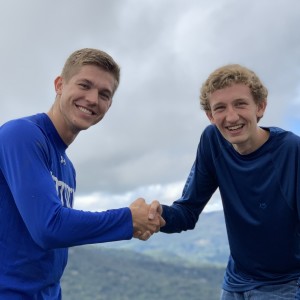
Saturday Nov 23, 2019
CCR Ep 42 Better Angels Bridging the Political Divide
Saturday Nov 23, 2019
Saturday Nov 23, 2019
Adam Rosenbalm and Austin Ramsey study at East Tennessee State University (ETSU.) Both raised in Conservative families in the South, they arrived on campus at a time when American citizens were more politically polarized than ever. After the 2016 election it seemed the country was more polarized than ever. Conversations quickly became debates that led to arguments. Both Adam and Austin wanted to do something about the partisan divide between Conservative and Liberal Americans. Fortunately they learned about a new group called Better Angels.
According to the Better Angels’ website, "Better Angels is a national citizens’ movement to reduce political polarization in the United States by bringing liberals and conservatives together to understand each other beyond stereotypes, forming red/blue community alliances, teaching practical skills for communicating across political differences, and making a strong public argument for depolarization.” They do this through their Red and Blue Workshops. With the help of a skilled facilitator, Better Angels hosts parliamentary styles debates.
After attending a Better Angels’ event, Adam and Austin decided to bring the Better Angels’ style of debate to the ETSU campus. They hosted the first-ever Better Angel’s debate on a college campus. They chose a hot button topic that drew a large audience. Adam explains, “East Tennessee State University is in rural Tennessee…and firearms are a part of most people’s lives, and so we set forth the resolution that said, ‘Resolved: Students should be allowed to carry guns on campus.’ The whole premise of the event after that was people were asked to either speak in the affirmative or the negative on the topic.” Throughout the debate students were given space to share their feelings about the topic and raise questions.
What often becomes a heated debate where people walk away angry and further divided instead became a space of deeper understanding and friendship. Because of skillful facilitation and clear guardrails that kept the conversation moving forward, the ETSU Better Angels gun debate was a huge success. Austin says, “It really won over the campus. Students really connected with the style. We had students on both side of the issues that at the end worked together to say, hey, we need to meet to talk about this issue. We need to work together, because now we see this issue is deeper than a gun…it’s about how we’ve been raised, how we perceive this issue, where we were born, and how some of the milestones in our lives affect how we think about this. And that’s important when we talk about these difficult issues.”
After that initial success, Adam and Austin organized debates on other topics. They share with Citizens Climate Radio host, Peterson Toscano, some of the insights they have learned that help them to foster civil discourse that results in genuine understanding and appreciation of people on the other side of an issue. They also talk about climate change and the challenges that must be overcome when organizing an effective dialogue between Conservatives and Liberals.
The Art House
Being a climate advocate can be very difficult. How do you maintain hope in the face of bad news and apathy from those around you? Where do you find encouragement and inspiration? What role can faith play in our climate work? These are the questions Rev. Dr. Leah D. Schade and Rev. Dr. Margaret Bullitt-Jonas the editors of a new anthology of essays by climate change faith leaders, wanted to answer. They bring together 21 climate leaders in the book, Rooted & Rising: Voices of Courage in a Time of Climate Crisis.
Contributors include Dr. Katharine Hayhoe, Rev Fred Small, Cristina Leaño, and Rabbi Shoshana Meira Friedman. In his introduction to the book, Bill McKibben argues for the need for a faith-based book about climate action, “…love, I would suggest, is what finally roots this volume: a love for the world around us, in all its improbable glory, and for the people who alone can bear witness to that glory and rise to its defense. If they are indeed summoned to that calling, it may be in part by fear—by the proper functioning of the survival instinct. But I suspect it will be more by love, the ever-great mystery. This volume opens some windows on that mystery, because the people whose words are collected in it have been powered by that force.”
In the Art House the editors speak briefly about the book, and then contributors, Dr. Nathasha DeJarnett, a research coordinator at the National Environmental Health Assocation reads a portion of her essay, “The View from My Window. Corina Newsome, from Young Evangelicals for Climate Action shares how her hope was rekindled through the process of writing her piece, “The Thing with Feathers.” Once she received her copy of the book and read the other essays, she found even more hope.
Puzzler
We hear answers to last month’s puzzler: System Change, Not Climate Change. What does that even mean?
New Puzzler Question
You are talking to your neighbor, Darren. You explain the many possible ways of we can address climate change. One proposal is to charge energy companies a fee when they extract fossil fuels. The money collected then goes to households. You say this carbon fee and dividend plan will serve as an incentive to switch over to cleaner sources of energy. Darren replies, “Well that’s stupid. People will just use the dividend they get to continue paying for fossil fuels. Giving them money enables them to stay in their fossil fuel lifestyles?”
What do you have to say to Darren?
Send Peterson your answer by December 15, 2019, along with your name, contact info, and where you are from. You can email your answers to radio @ citizensclimate.org or leave a voicemail of 3 minutes or less at 518.595.9414. (+1 if calling from outside the USA.)
Dig Deeper
- Conservative Climate Lobby Day
- What Does the Bible Say about Climate Change? Ep 30 Citizens Climate Radio
- Parliamentary Procedure, Britannica
- The Case for Climate Hope by Conor Dwyer Reynolds, The New Republic
You can hear Citizens’ Climate Radio on iTunes, Spotify, Stitcher Radio, SoundCloud, Podbean, Northern Spirit Radio, Google Play, PlayerFM, and TuneIn Radio. Also, feel free to connect with other listeners, suggest program ideas, and respond to programs in the Citizens’ Climate Radio Facebook group or on Twitter at @CitizensCRadio.
If you listen on iTunes, please consider rating and reviewing us!
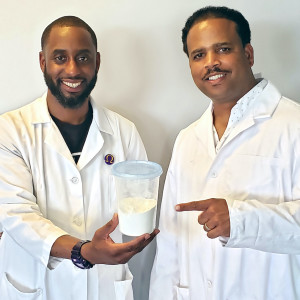
Saturday Oct 26, 2019
CCR Ep 41 Tuskegee University Research Breakthrough
Saturday Oct 26, 2019
Saturday Oct 26, 2019
Tuskegee University is a historically Black University in Alabama founded in 1881. From the early work of George Washington Carver, Tuskegee has trained generations of researchers who are unraveling mysteries from the natural world. Dr. Carver wrote, “I love to think of nature as an unlimited broadcasting station, through which God speaks to us every hour, if we will only tune in.”
Two researchers have been tuning in and made a series of extraordinary discoveries all from agricultural waste. Out of the muck Dr. Michael L Curry, Dr. Donald White, and a team of other researchers found a natural alternative to plastics, one that will biodegrade in less than 100 days. This will keep us from adding even more pollution to a very polluted world. Further researched revealed this material also has other extraordinary properties.
Dr. Curry and Dr. White continue in the tradition of George Washington Carver and the many curious, well trained, and highly skilled researchers at Tuskegee University.
The Art House
Puzzler Question
We will extend the puzzler question from last month.
After attending the recent climate strikes, imagine you run into your cousin, Kristan. She saw news reports about events around the world. She says, “I love the sign ‘system change not climate change,’ but it seems like a total fantasy. They expect everyone to go vegan or something? What systems can we change that will make any difference with climate change?"
Kristan needs some help envisioning the kind of change that you are pursuing. How would you answer her?
Send Peterson your answer by November 15, 2019, along with your name, contact info, and where you are from. You can email your answers to radio @ citizensclimate.org or leave a voicemail of 3 minutes or less at 518.595.9414. (+1 if calling from outside the USA.)
Dig Deeper
- George Washington Carver, Tuskegee University
- 7 Incredible Uses for Nanocellulose, Gizmodo
- Bioplastics, Encyclopedia Britannica
- MIT engineers devise new way to remove carbon dioxide from the air, Cnet.com
- Acting for Climate Facebook page
- Artists for Climate Change
You can hear Citizens’ Climate Radio on iTunes, Spotify, Stitcher Radio, SoundCloud, Podbean, Northern Spirit Radio, Google Play, PlayerFM, and TuneIn Radio. Also, feel free to connect with other listeners, suggest program ideas, and respond to programs in the Citizens’ Climate Radio Facebook group or on Twitter at @CitizensCRadio.
If you listen on iTunes, please consider rating and reviewing us!
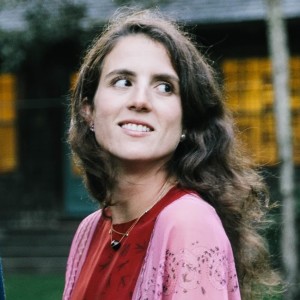
Saturday Sep 28, 2019
Saturday Sep 28, 2019
Tatiana Schlossberg is the author of the new book, Inconspicuous Consumption. In it she highlights just how good we are at being bad when it comes to fossil fuel pollution. She exposes the pollution generated by four major industries--Fuel, Food, Internet, and Fashion. About the book, Bill McKibben writes, “[Schlossberg] deserves real credit for coming through her journey into the guts of the consumer machine with a clarifying insight: We aren’t going to solve our problems one consumer at a time. We’re going to need to do it as societies and civilizations, or not at all.”
In her conversation with host, Peterson Toscano, Schlossberg dives into the the vast world of fashion and the extreme pollution the industry produces, and how this pollution contributes to global warming. She focuses on specific sectors including denim and the production of jeans.
In writing about cotton, Schlossberg points out, “It’s grown in more than sixty-five countries around the world, makes up about one-third of all the fibers used in textiles, takes up about 3 percent of global agricultural land, and has a big carbon footprint: producing the world’s cotton supply for the use in textiles results in 107.5 million tons of carbon dioxide emissions every year.”
In addition to creating pollution, growing cotton and manufacturing cotton textiles demand a massive amount of water. “Producing one kilogram of cotton requires somewhere between 1,800 and 7,660 gallons of water, depending on where its grown,” according to Schlossberg. Once harvested, the cotton is then transformed into fabrics like denim, a process that is also water intensive. Schlossberg states, “as much as 2,900 gallons can be used to produce a single pair of pants (using conventional methods), mostly because of the dyeing and finishing.”
When it comes to the alternatives to cotton, like synthetics, Schlossberg reveals the tremendous greenhouse gas emissions and micro-fiber pollution created every year as a result of the manufacture, use, washing, and disposing of synthetic fabrics. The company that pioneered synthetic fabric, Patagonia, is now hard at work looking for solutions and alternatives. Schlossberg warns pollution from fashion is increasing because of the growing industry of fast fashion, where cheap quick production comes with a hidden ecological price tag.
In her book and this podcast episode, Schlossberg does a great job of pointing out the many sources of pollution that come from the world of fashion. She readily admits she does not provide many solutions. Her job is to help us understand the scale of the problem. She recognizes the response needs to be in relation to the size of the problem. Individual efforts are not nearly enough. The role of politicians and the political process is vital to bringing about the changes in policy we need. In addition, the role of citizens speaking out about climate change is more important than ever.
Schlossberg helps us consume this heavy topic with plenty of spoonfuls of sugar; her humor, warmth, and hope shine through.
The Art House
What does it take to create a poetic masterpiece that is also able to express the complex emotions we feel around climate change? Poet Catherine Pierce describes her process crafting her moving poem, Anthropocene Pastoral Host, Peterson Toscano produces an Art House segment heavily influenced by the podcast Song Exploder. They invite a musician to unpack a song and talk about almost every aspect of it and their creative process. In the Art House, Pierce does something similar for us with Anthropocene Pastoral. The poem first appeared in the American Poetry Review.
Inspired by the California Super Bloom of 2017, Pierce captures the strangeness of living in a world that is rapidly and dangerously changing but at the same time can be unseasonably pleasant and beautiful. (Tatiana Schlossberg wrote about a Super Bloom for the New York Times.)
Pierce opens the poem with the line, "In the beginning the ending was beautiful.”
In the conversation she reveals the many choices she made as a poet to create the haunting mood of the poem and the lush landscape in it filled with a riot of images, animals, and life. She explains some of the techniques and devices she uses to construct the poem. Then she reads the poem for us.
You can read more of Catherine Pierce's climate change themed poetry online including High Dangerous and Planet. Pierce’s last book of poetry, The Tornado is the World is about an EF-4 tornado/extreme weather. The filmmaker Isaac Ravishankara produced a beautiful short film out of one of the poems in the collection, "The Mother Warns the Tornado.”
Catherine Pierce is the co-director of the Writing Program at Mississippi State University, and the author of the award winning collection of poetry, Famous Last Words. She is working on a new book of poetry, Danger Days, which continues her exploration of climate change. It will be available in autumn 2020.
Puzzler
Students from Susquehanna University answer last month's puzzler question. Victor, a middle school student is freaking out because of climate change. “What could I even do about?” What does he need to hear?
We also get inspiration from elementary students at the River Valley Nature School who gave a presentation at the Climate Strike event held in Lewisburg, PA.
New Puzzler Question:
After attending the recent climate strikes you ran into your cousin, Kristan. She saw news reports about events around the world. She says, “I love the sign—system change not climate change, but it seems like a total fantasy. They expect everyone to go vegan or something? What systems can we change that will make any difference with climate change? ”
Kristan needs some help envisioning the kind of change that you are pursuing. How would you answer Kristan?
Leave your name, contact info, and where you are from. Get your answer in by October, 15, 2019. You can email your answers to radio @ citizensclimate.org or leave a voicemail of 3 minutes or less at 518.595.9414. (+1 if calling from outside the USA.)
Dig Deeper
- The Price of Fast Fashion (Nature)
- Making Climate Change Fashionable—The Garment Industry Takes on Global Warming (Forbes)
- We Have No Idea How Bad Fashion Actually Is for the Environment—But it’s definitely not good. (Racked)
- Synthetic Microfiber Pollution (Patagonia)
- Waste Not, If You want to Help Secure the Future of the Planet. (NY Times article by Tatiana Schlossberg)
You can hear Citizens’ Climate Radio on iTunes, Spotify, Stitcher Radio, SoundCloud, Podbean, Northern Spirit Radio, Google Play, PlayerFM, and TuneIn Radio. Also, feel free to connect with other listeners, suggest program ideas, and respond to programs in the Citizens’ Climate Radio Facebook group or on Twitter at @CitizensCRadio.
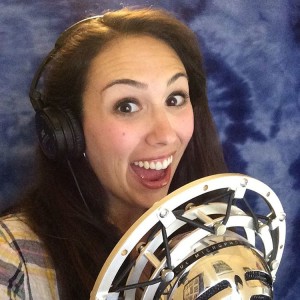
Saturday Aug 24, 2019
CCR Ep 39 Envisioning and Communicating Climate Success
Saturday Aug 24, 2019
Saturday Aug 24, 2019
Sometimes we cannot easily imagine the impacts legislation and policy can make. Andrews Smalls from City Lab wrote the article, What American Cities Looked like Before the Environmental Protection Agency Was Created. "Since 1970, the agency has reduced the six most common air pollutants by more than 50 percent, reduced air toxins from large industrial sources by almost 70 percent, and eliminated the use of ozone-depleting chemicals. And this progress was accomplished even as the country’s GDP tripled, energy consumption increased by 50 percent, and vehicle use nearly doubled."
Of course we have still have work to do. We need to reduce localized pollution and heat-trapping greenhouse gases globally. So how do we build the political will so that the public clamors for legislation and policy that will change how we get and use energy? We need to communicate to the public what success looks like. Envisioning success in our climate work though requires imagination.
To help us with this task Sean Dague, the group leader for the Mid-Hudson South chapter of Citizens Climate Lobby, leads us through a powerful exercise. He asks us, What does a decarbonized world look like? What does it smell like? What does it sound like?
Once you hear Sean’s vision of a successful future, we invite you to continue the exercise. Try some creative writing. Write a short story or a letter from the future about what you see, smell, and hear. Maybe create visual art, a drawing or painting. If you can’t draw or paint, get images from magazines and on-line then create a collage. Write a song, create a map, choreograph a dance. Use art to capture a vision of a decarbonized world. Even if you do not see yourself as an artsy person, just try it.
Towards the end of his life, writer Kurt Vonnegut would say, "Everyone should practice art because art enlarges the soul."
PLEASE feel free to share your art with our host, Peterson Toscano, and let him know if I can share it with listeners, on the podcast, Facebook, and Twitter.
If you have art from this exercise to share or if you have idea for the Art House, feel free to contact Peterson at radio@citizensclimate.org.
You just spoke to a group of middle school students about your climate change work. During the Q&A a student named Victor says, “I am freaking out because of all the bad stuff I am seeing and it seems like it is just getting worse and worse. I really do not see the point of even trying anymore. I think we are too far gone. What difference does this make?”
Lots of people young and old feel the same way. So how do you respond to Victor? How can you validate his fears while also giving him reasons to hope and pursue solutions.
Send us your answers. Leave your name, contact info, and where you are from.
Get back to Peterson by September, 15, 2019 Email: radio @ citizensclimate.org or leave a voicemail of 3 minutes or less: 518.595.9414. (+1 if calling from outside the USA.)
- Climate Interpreter, Do you work or volunteer with an aquarium, zoo, national park, national marine sanctuary, or other informal science education center that is addressing climate change? Connect and share with a national community of colleagues and peers.
- NNOCCI’s Research Reports, Frameworks Institute
- What Does Success Look Like? Reports from the Future from Climate Stew
- Role of Values in climate change community engagement, NewsDay
- America Adapts podcast episode 95 Summer Sizzle featuring Citizens Climate Radio
- Citizens Climate Radio Ep 12: Values that drive CCL’s work
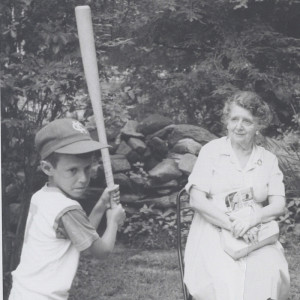
Saturday Jul 27, 2019
CCR Ep 38 Lew Blaustein and the Green Sports Movement
Saturday Jul 27, 2019
Saturday Jul 27, 2019
Lew Blaustien, editor of Green Sports Blog, is very concerned about climate change. A sports nut since childhood, Lew began a career in sportscasting, and eventually settled into the marketing side of professional sports. There was nothing in his background to suggest he would turn into a passionate climate advocate. The 911 attacks on New York City in 2001 though changed everything for him. You will hear about how that traumatic event set him on a new career path.
Lew puts the challenges we face into perspective. He says, “Mike Trout of the Anaheim Angels—best player in baseball—recently signed a 400 plus million dollar twelve year contract extension. Twelve years is also what the IPCC said is the time frame that humanity has to reduce our carbon footprint by 45%—basically Mike Trout’s contract.” Lew believes sports fans can become instrumental in taking on climate change. “We need to get the masses of people who follow sports...to engage on positive climate action.”
In this lively interview you will hear Lew brimming with enthusiasm as he reveals a growing trend in the professional sports world. More and more athletes, teams, and leagues are working hard to address environmental concerns. You will also hear from professional skier, Angel Collinson. Through Protect Our Winters she has been speaking to members of congress. In speaking with lawmakers and how many are concerned about climate change, she has become more determined than ever to speak out about the issue. Inspired by athletes like Angel Collinson and Milwaukee Brewers pitcher, Brent Suter, who we featured on Episode 37, Lew and other in the green sports movement are urging teams and players to take the next step—speak directly about climate change and endorse the policies that will address our dangerous pollution problems.
The Art House
Poet liz gonzález joins us in the Art House. Her background is important to her work. She describes herself as “a fourth generation Southern Californian on my mother’s side and the daughter of a Mexican immigrant father who died when I was three.” A teacher of creative writing through the UCLA Extension Writers Program, liz writes poetry and creative non-fiction. Through her writing liz captures the beauty and the challenges of a rapidly changing landscape. For the Art House she reads from her book, Dancing in the Santa Ana Winds: Poems y Cuentos New and Selected. She explains how the power of the Santa Ana winds serves as a metaphor for the early years of liz’ marriage. She also reads a poem from the anthology, Fire and Rain: Ecopoetry of California.
Though she is very passionate about the suffering that comes from pollution and climate change, liz reveals how difficult it is for her to write about social justice issues. “It has to just happen naturally. I can’t sit down and decide I want to write it. It always ends up sounding preachy, and there are people who do it so much better.” Experience the natural beauty liz recreates in her writing and learn about some of the challenges artists like liz face in a time of climate change.
Puzzler
For last month’s puzzler we asked listeners to share with us the colors and sounds they associate with climate change.
New Puzzler Question
On Facebook you reconnected with a childhood friend, Lydia. She has become worried about climate change and is wondering about what she can do right now to prepare for the effects of climate change. While she admires your work in mitigating climate change, she feels a growing interest in adaptation. Lydia asks you, “What are ways I can help my community to get ready for climate change?”
This is a big question and hopefully the beginning of a larger discussion about climate adaptation. What are some ideas you have for Lydia? Where might she start in adapting to climate change?
You’re welcome to answer either or both. Send Peterson your answers by July 15, 2019, along with your name, contact info, and where you are from. You can email your answers to radio @ citizensclimate.org or leave a voicemail of 3 minutes or less at 518.595.9414 (+1 if calling from outside the USA).
Dig Deeper
- Sports for Climate Action Framework
- The Green Sports Alliance
- Thomas L Friedman: The Power of Green
- Ep 18 Race Car Driver and Climate Advocate, Aaron Telitz
- George Marshall: Don’t Even Think about It: Why are Brains are Wired to Ignore Climate Change
- LA Times: The Santa Ana Winds and the Literature of Los Angeles
You can hear Citizens’ Climate Radio on iTunes, Spotify, Stitcher Radio, SoundCloud, Podbean, Northern Spirit Radio, Google Play, PlayerFM, and TuneIn Radio. Also, feel free to connect with other listeners, suggest program ideas, and respond to programs in the Citizens’ Climate Radio Facebook group or on Twitter at @CitizensCRadio.
If you listen on Apple Podcasts, please consider rating and reviewing us
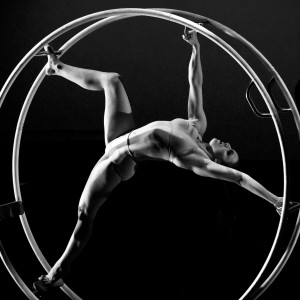
Saturday Jun 22, 2019
Saturday Jun 22, 2019
In this episode we feature two people with very unconventional jobs. Milwaukee Brewers pitcher, Brent Suter is concerned about climate change. He is using his platform to speak out. Circus artist and podcaster, Eliana Dunlap, "does circus" and is using circus arts to raise awareness about climate change.
There is a growing movement among professional athletes. Beyond greening the sportsworld, more and more champions are using their platforms to urge large scale responses to climate change. Lew Blaustein, editor at Green Sports Blog, writes about this trend. He has been introducing Citizens Climate Radio host, Peterson Toscano to professional athletes who are not afraid to talk about climate change.
Brent Suter received a scholarship to play baseball at Harvard University, where he studied environmental science. He learned about the effects of climate change and what how we need to drastically reduce our pollution. At first that meant making individual lifestyle choices to lower his own personal carbon footprint, but he has been expanding his efforts. Through his Strike Out Waste initiative, he got professional baseball players to use reusable water bottles during spring training.
That’s just a start. Brent understands we need to change national energy policy. In a recent interview for the Green Sport Blog he said, "At this point in time, a carbon pricing program and higher incentives for clean energy are absolutely imperative towards the goal of stabilizing our climate and ensuring a healthy and viable future for our planet. The Energy Innovation and Carbon Dividend Act would not only help achieve these goals, but would give the funds raised back to the people, save countless lives, and create millions of jobs! A Green Revolution needs to happen fast, and this law, if passed, would play a vital role in helping solve the most important problem of our lives.”
Hear our exclusive interview and learn more about the exciting news about how Brent is taking on climate change.
The Art House
Eliana Dunlap was not born into a circus family; instead she learned circus arts at a circus school in Quebec. Her circus skill set is impressive and includes acrobatics, juggling, dance, and her speciality, the German Wheel. She has been performing circus arts in non-traditional spaces. She is also someone who is creatively responding to climate change. Through her podcast, Changing the World and Other Circus Related Things, she is connecting with other concerned circus artists. She is also one of the founding members of the Circus Action Network.
Eliana likens the high stakes world of circus arts to the challenges we face with climate change. She also sees examples from the circus world about how we can get people from various backgrounds to work together. This summer she and a friend will do street performances of a new circus art show called, High Stakes--What's the Plan(t)? In addition to lots of juggling and acrobatics, the show features a live plant as part of the action.
In this fascinating interview, Eliana opens up about the world of circus and how she and other concerned artists are creating avenues for a deeper conversation about climate change.
Puzzler
In answer to last month's question, high school student, Jerome Foster II, explains why in his climate work he is more of an advocate than a rebel.
New Puzzler Question
It’s a weird one, but there is a method in Our madness. We need to expand the ways we talk about climate change. Here is the question:
What color do you associate with climate change and why? or What sound do you associate with climate change and why?
Answer either or both.
Try answering the puzzler question. Leave your name, contact info, and where you are from. Get back to host, Peterson Toscano by July, 15, 2018. You can email your answers to radio @ citizensclimate.org or leave a voicemail of 3 minutes or less at 518.595.9414. (+1 if calling from outside the USA.)
Dig Deeper
- United Nations Sports for Climate Action Framework
- Brent Suter on Major League Baseball Network Twitter with a video about sustainability
- WTMJ 4 featuring Brent Suter's skills doing impressions
- See Eliana Dunlap on the German Wheel and on the Trapeze
- A short documentary about the German Wheel
- High Stakes--What's the Plan(t) video promo
You can hear Citizens’ Climate Radio on iTunes, Spotify, Stitcher Radio, SoundCloud, Podbean, Northern Spirit Radio, Google Play, PlayerFM, and TuneIn Radio. Also, feel free to connect with other listeners, suggest program ideas, and respond to programs in the Citizens’ Climate Radio Facebook group or on Twitter at @CitizensCRadio.
If you listen on Apple Podcasts, please consider rating and reviewing us!
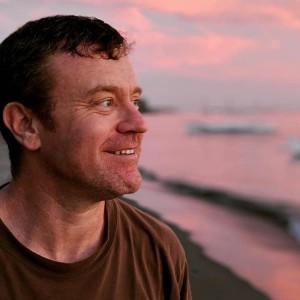
Saturday May 25, 2019
Saturday May 25, 2019
Sam Daley-Harris, author of the book, Reclaiming Our Democracy, helped develop a model of advocacy that empowered citizens to connect directly with lawmakers. This model has helped shape organizations like Citizens Climate Lobby and the Friends Council for National Legislation. Sam reveals some of the sources for his own inspiration. His parents--their faith and public witness--along with insights he gained from his twelve years playing in the Miami Philharmonic orchestra directly contributed to his success in addressing world hungry, promoting micro-loans for the poor, and in training climate advocates. Sam highlights the important roles advocates play in taking on climate change.
Another climate advocate, Glen Retief, had the opportunity to take on the rebel role during the anti-Apartheid struggle in South Africa. He stood up to the racist policies of his government, but not as a rebel. Instead, he took on the role of advocate--lobbying, writing letters, and going to meetings. You will hear about the seemingly impossible task to turn his country around and the extraordinary lessons he learned that he now applies to his work in promoting solutions to climate change. Glen is the author of the Lambda Awarding winning book, The Jack Bank--A Memoir of a South African Childhood.
Art House
Elizabeth Doud takes on the role of Siren Jones in her one-person performance, The Mermaid Tear Factory. Based in Miami, Florida, she has been a catalyst to engage other artists in conversations around climate change. Each year she helps organize Climakaze Miami.
Elizabeth explains why she sees Miami as the city of the future--both with its international changing demographics and the many ways climate change is reshaping the city. She also shares why artists need to break away from telling the story of climate science and instead dig deep into the hard emotions around climate change.
Puzzler Question
You attended one of the recent student walk-out demonstrations. While there you spoke to a parent, Claire. Claire’s daughter was a protest organizer. You tell Claire how you speak to legislators about laws that will address fossil fuel pollution. You see yourself as an advocate, working in the system to bring about change. Claire confesses, “I would never have the patience for that. I am so angry and I need to protest.” She then asks, “So why do you do that kind of advocacy work instead of protesting and civil disobedience?”
Try answering the puzzler question. Leave your name, contact info, and where you are from. Get back to host, Peterson Toscano by June, 15, 2018. You can email your answers to radio @ citizensclimate.org or leave a voicemail of 3 minutes or less at 518.595.9414. (+1 if calling from outside the USA.)
Dig Deeper
- Citizens Climate University webinar: Reclaiming Our Democracy with Sam Daley-Harris.
- RESULTS--Raise Your Voice to End Poverty
- 2018 Global Hunger Index
- Climate Change -- A University of Miami Special Report
- Interview with Elizabeth Doud in Indicio Magazine
You can hear Citizens’ Climate Radio on iTunes, Spotify, Stitcher Radio, SoundCloud, Podbean, Northern Spirit Radio, Google Play, PlayerFM, and TuneIn Radio. Also, feel free to connect with other listeners, suggest program ideas, and respond to programs in the Citizens’ Climate Radio Facebook group or on Twitter at @CitizensCRadio.
If you listen on Apple Podcasts, please consider rating and reviewing us!

Saturday Apr 27, 2019
CCR Ep 35 Plastic Pollution and Heavy Metal
Saturday Apr 27, 2019
Saturday Apr 27, 2019
Nicole Chatterson at the University of Hawaii and Dominic Scicchitano at Bucknell University in Pennsylvania have spent a lot of time in the water. Nicole talks about plastic pollution she has been hauling up in the Pacific Ocean while Dominic shares his findings regarding micro-plastics in the Susquehanna River. The segment helps listeners connect plastic production and pollution with climate change. What happens to our trash once we throw it out?
Nicole discusses the complications of the waste to energy incinerator on the island of Oahu. Both guests also talk about the need to advocate for systems changes that will reduce plastic waste especially from single use plastics. Discover the individual and larger policy changes that will help us reduce greenhouse gas emissions.
The Art House
Peter Buckland is a local politician, a sustainability expert at Penn State University, and a poet. He also loves to listen to music. He talks about the powerful environmental messages he hears in heavy metal music. Discover how this loud and very fast music speaks directly to the climate change problems we created and must address.
The Puzzler
We hear answers to the puzzler question, "If global warming is happening, why did we just have such cold weather this past winter in the USA?"
New Puzzler Question
This puzzler is for people in groups like Citizens Climate Lobby that speak to members of congress.
You attended one of the recent student walk-out demonstrations. While there you spoke to a parent, Claire. Claire’s daughter was a protest organizer. You told Claire about the work you do speaking to legislators about laws that will address fossil fuel pollution. You see yourself as an advocate, working in the system to bring about change. Claire confessed, “I would never have the patience for that. I am so angry and I need to protest.” She then asked, “Why do you do that kind of advocacy work instead of protesting and civil disobedience?”
Send Peterson your answers by May 15, 2019, along with your name, contact info, and where you are from. You can email your answers to radio @ citizensclimate.org or leave a voicemail of three minutes or less at 518.595.9414 (+1 if calling from outside the USA).
Dig Deeper
-
How Big is the Great Pacific Garbage Patch? Science Vs. Myth (NOAA)
-
Greenhouse Gas Emissions from the Plastic Processing Industry (Natural Resources Canada)
- CCL Monthly call with Julia Roberson, VP of Communications for Ocean Conservancy
- Middle Susquehanna River Keeper
You can hear Citizens’ Climate Radio on iTunes, Spotify, Stitcher Radio, SoundCloud, Podbean, Northern Spirit Radio, Google Play, PlayerFM, and TuneIn Radio. Also, feel free to connect with other listeners, suggest program ideas, and respond to programs in the Citizens’ Climate Radio Facebook group or on Twitter at @CitizensCRadio.
If you listen on Apple Podcasts, please consider rating and reviewing us!
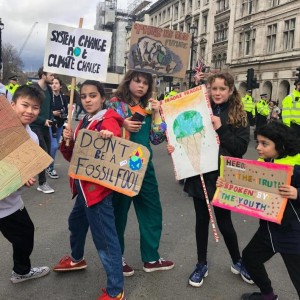
Saturday Mar 23, 2019
CCR Ep 34 Extinction Rebellion and Students Demanding Climate Action
Saturday Mar 23, 2019
Saturday Mar 23, 2019
Rebels are organizing. We are witnessing a growing global student protest movement around climate change. In episode nine our host, Peterson Toscano, chatted with Quaker author, speaker, and activist, Eileen Flanagan. She described the four different roles change agents take—Helper, Organizer, Advocate, and Rebel. This month we dig deeper into the role of the rebels—groups and individuals who disrupt business as usual in order to bring about systems change.
In addition to capturing voices of protesters from the recent student walk-out in Honolulu, Hawaii, which was part of similar actions around the world, Peterson chats with Robin Boardman, from the British group Extinction Rebellion. Robin and his friends are planning major disruptive actions in London and other parts of the UK in mid-April. What are their goals, values, and methods? Join us for this insightful and moving conversation.
The Art House
Returning to the Art House is Hope Clark. She is a dancer concerned about climate change. In episode 18 she told us how she decided to engage her community in the Washington DC area through a public art project. To do so, she used giant parachutes.
Creating an art piece can help us process our thoughts and feelings about a topic as large and challenging as climate change. No surprise then, once she completed the Make a Movement Parachute Community Project, Hope began to go deeper into her own feelings. She found herself returning to an old comfort—an addiction to cigarette smoking. Hope is making powerful connections between her own addictions and society's addiction to fossil fuels. Through spoken word and dance, she is exploring the comforts we seek that have failed us.
Puzzler Question
Puzzler QuestionYou are at a family dinner when you mention your excitement about more and more people becoming concerned about climate change. Your Uncle Ralph interrupts, “Global warming? Seriously? What about all this record cold weather we have had? It doesn’t seem its warming at all?”So what do you say? How can you open up a conversation about climate change that doesn’t just turn into a debate?
Dig Deeper
- Extinction Rebellion on Twitter @ExtinctionR
- Erica Chenoweth, author of Civil Action and the Dynamics of Violence, inspiration to Extinction Rebellion
- Gandhi's Civil Disobedience
- Environmental Organizations Outreach Training
- Addiction as a Metaphor for Climate Change: An Interview with Charles Eisenstein(The Fix)
You can hear Citizens’ Climate Radio on iTunes, Spotify, Stitcher Radio, SoundCloud, Podbean, Northern Spirit Radio, Google Play, PlayerFM, and TuneIn Radio. Also, feel free to connect with other listeners, suggest program ideas, and respond to programs in the Citizens’ Climate Radio Facebook group or on Twitter at @CitizensCRadio.
If you listen on iTunes, please consider rating and reviewing us!
(Photo from the Extinction Rebellion newsletter #16.)

